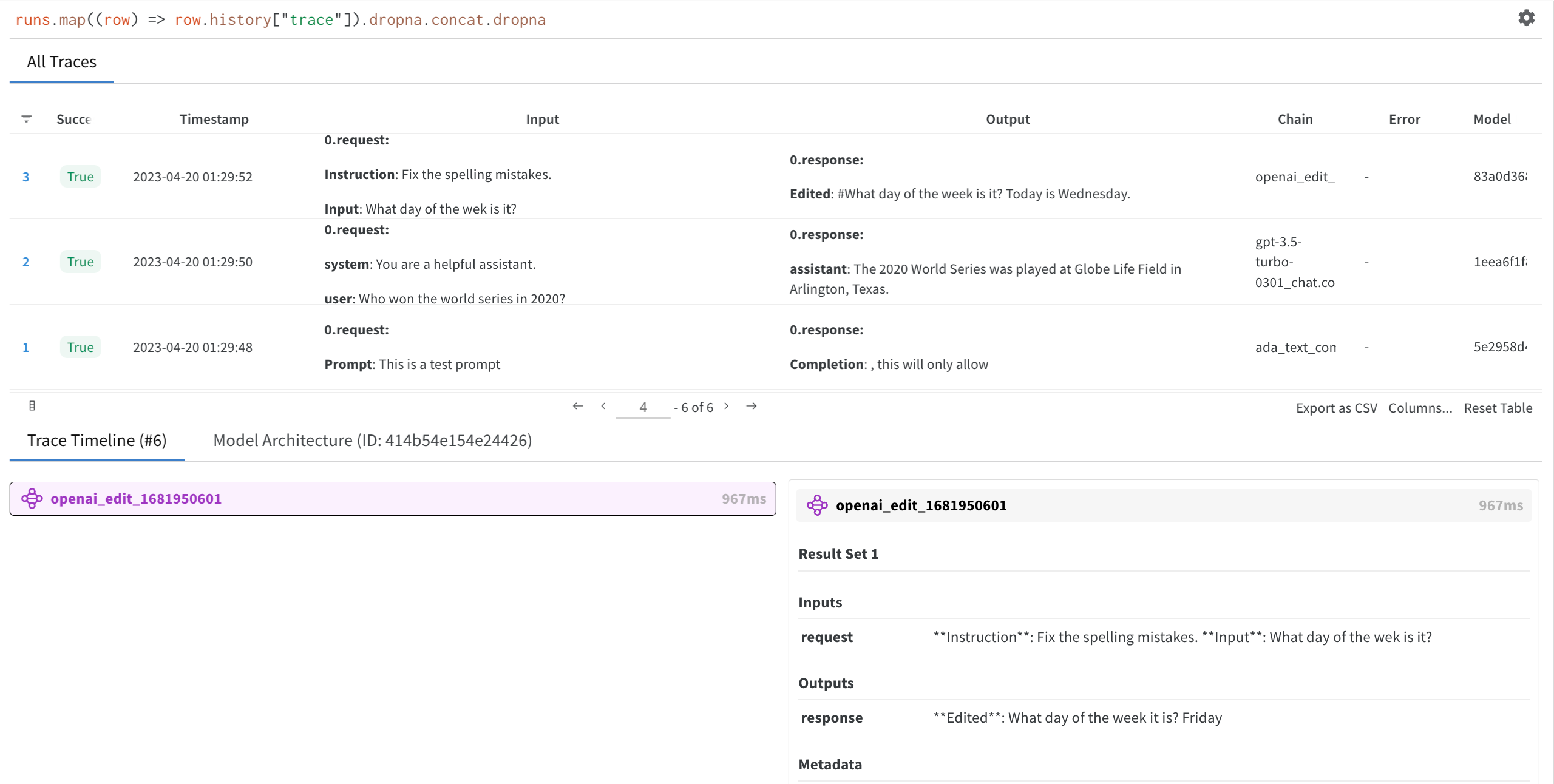See the OpenAI fine-tuning integration to learn how to use W&B to track your fine-tuning experiments, models, and datasets and share your results with your colleagues.

Install OpenAI Python API library
The W&B autolog integration works with OpenAI version 0.28.1 and below. To install OpenAI Python API version 0.28.1, run:Use the OpenAI Python API
1. Import autolog and initialise it
First, importautolog from wandb.integration.openai and initialise it.
wandb.init() accepts to autolog. This includes a project name, team name, entity, and more. For more information about wandb.init(), see the API Reference Guide.
2. Call the OpenAI API
Each call you make to the OpenAI API is now logged to W&B automatically.3. View your OpenAI API inputs and responses
Click on the W&B run link generated byautolog in step 1. This redirects you to your project workspace in the W&B App.
Select a run you created to view the trace table, trace timeline and the model architecture of the OpenAI LLM used.
Turn off autolog
W&B recommends that you calldisable() to close all W&B processes when you are finished using the OpenAI API.